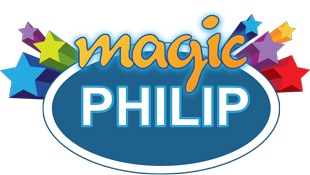“We had a great introduction to big read week. We had lots of children dress up as witches and wizards and we enjoyed watching Magic Philip! He demonstrated lots of magic tricks and he even told how some of them were done. The children loved joining in and being Magic Philip’s assistant!” Nicola Wood Y2A, Platt Bridge Community School, Wigan
https://www.theguardian.com/education/2008/sep/12/secondaryschools
Teach magic lessons in school, says professor
Magic tricks boost confidence and self-discipline, says psychologist calling for lessons to be introduced to classrooms
The trick to making primary school children more confident and sociable is to teach them magic, claims Professor Richard Wiseman, psychologist at the Open University.
At the British Association for the Advancement of Science in Liverpool yesterday, he reported the results of his study of 50 pupils at two Hertfordshire schools, which compared his “magic school” lesson with a standard personal, social and health education (PSHE) lesson currently used to promote good health, confidence and social skills.
“Showing and teaching the children magic tricks encourages skills, such as self-discipline – unless you practice magic skills you will fail – and critical thinking. It also helps children to think from another person’s perspective, and consider how they are feeling,” said Wiseman, who compared the increase in sociability and confidence of the children, aged 10 to 12, at the JFK school and the Wroxham School in Potter’s Bar.
At the start of the study, each child completed standard measures of social skills and self-esteem, and their teachers provided individual assessments of sociability and confidence. In one school, children were given a standard PSHE lesson that involved a series of activities, including: individual and group writing exercises about things that made the children feel good; being read a story and putting their thumbs up and down to indicate when the main character felt happy and sad. Two weeks later, the measures were taken a second time.
The group was then given a lesson in how to perform two magic tricks. One involved magically restoring a rope that has been cut in half, and the other was a mind-reading trick. Children were asked to show the tricks to their friends and family. Two weeks later, a final set of self-esteem and sociability measurements were taken. Children in a second school received exactly the same lessons, but in reverse order.
The teachers’ ratings revealed the children were significantly more sociable and confident after the magic lesson than after the standard PSHE lesson, and the children rated “magic school” as significantly more enjoyable.
Professor of Jonathan Osborne, chair of science education at King’s College, London believes that developing skills in a practical context is better than just sitting around in the classroom. “Magic fascinates everyone and depending on the methodology needs good social skills. There are material explanations for the tricks for pupils to think about too. This type of class helps kids to engage in active stuff rather than ill defined debates,” Osborne said.
On the basis of these results, Wiseman hopes other schools will take the opportunity to use magic school as a teaching tool. “With the popularity of Harry Potter, it comes as no surprise that children are interested in magic, but the results are very encouraging and we hope to roll this out across the country,” he added.
Osborne agrees that anything that educates pupils in broadest sense is worth exploring and exploiting. “These are worthwhile out of school experiences and cross boundary activities that can be done at home. It adds to the enjoyment of learning and helps to motivate,” Osborne concluded.
Three quick and simple tricks that will help boost self-esteem:
Is that your card?
1) Shuffle a deck of cards, and secretly look at the bottom card.
2) Fan out the cards face down, and ask your friend to take a card from the deck and look at it.
3) Square up the deck and hold it face down. Ask your friend to place their card on the top of the deck.
4) Cut the deck roughly in half, and then complete the cut by placing the lower portion on top of the upper portion.
5) Turn the deck face up, and spread out the cards on a table.
6) Secretly look for the card that was on the bottom of the deck, and your friend’s card will be lying on top of it. Pick out their card and announce, “Is that your card?”
Mind Reading Magic
1) Lay a 20p, 10p, 5p, 2p and 1p coin on a table.
2) Turn your back, and ask your friend to choose any coin.
3) Ask them to pick up the coin and hold it tightly in their hand for a few moments while concentrating on it.
3) Next, have them put the coin back on the table and move all of the coins around.
4) To find out which coin they chose, pick up each coin and hold it against your forehead. The coin they chose will feel warmer than the others.
The amazing jumping band
1) Place a rubber band over your first (index) and second (middle) fingers, and slide it all the way down to the bottom of your fingers.
2) Slowly curl your fingers into the shape of a fist, and stretch the rubber band so that it’s over all of your fingers.
3) When your friends look at the back of your hand, they will think that the rubber band is only around your first and second fingers.
4) Open all your fingers, and the rubber band will jump on to your third and little fingers!

